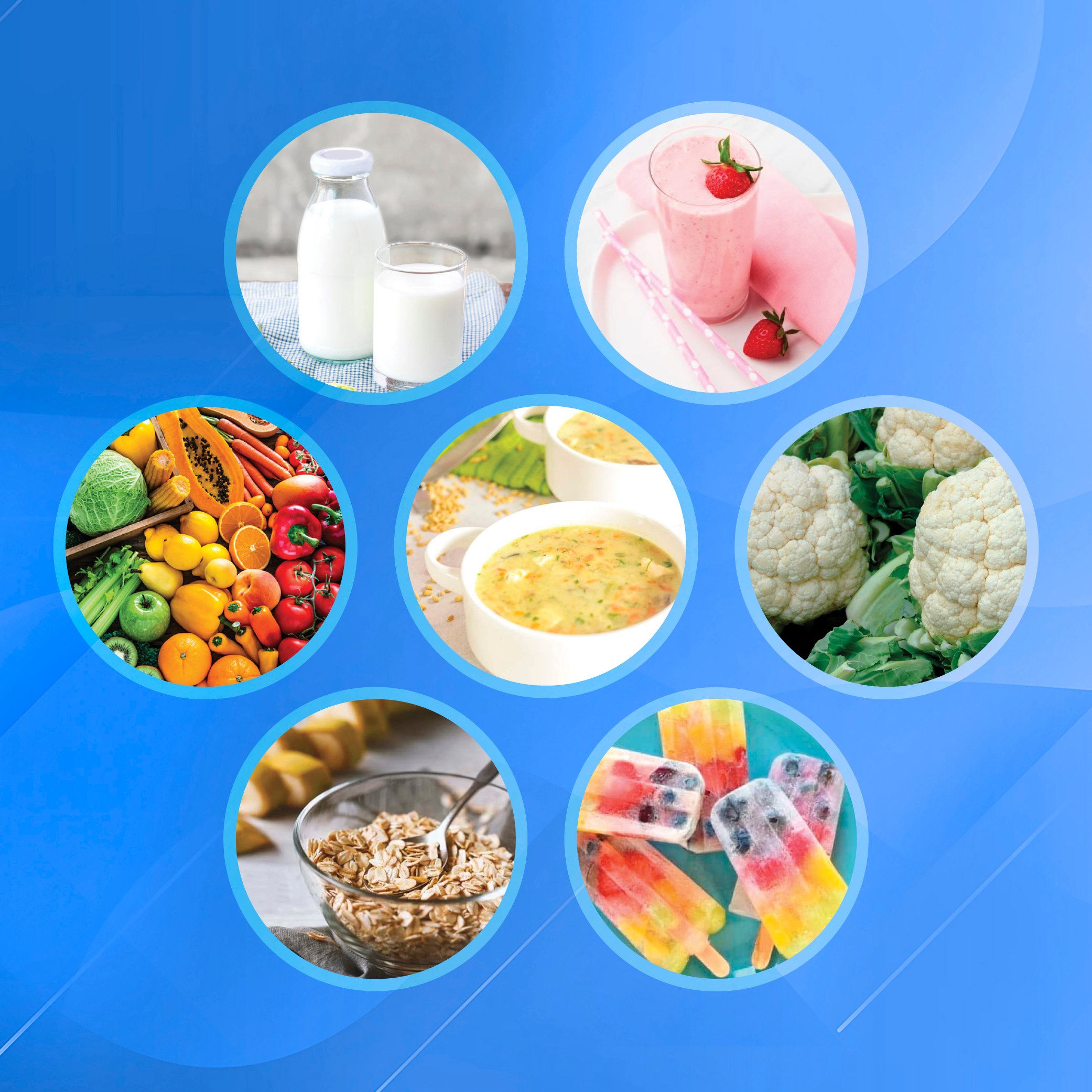National Hydration Day: Foods and Beverages That Can Help You Stay Hydrated

National Hydration Day is celebrated every year on June 23, in the United States. Keeping properly hydrated is essential to good health, and water consumption is often the first source that comes to mind. If water isn’t your cup of tea, fear not! There are several other beverages and foods that can help you stay healthy.
How Much Fluids Do Our Bodies Require?
The amount of fluids our bodies need to stay hydrated will depend on several different factors, including age, weight, gender, level of physical activity/exertion, environment, ambient temperature and humidity, our general health, and whether we are pregnant or breastfeeding [2].
Generally speaking, the National Academies of Sciences, Engineering, and Medicine [3] recommends that women consume around 11 cups (91 ounces or 2.7 liters) of fluid daily and men get about 16 cups (125 ounces or 3.7 liters) daily. This may seem like a lot of fluid to drink, especially for those of us who are not too partial to the taste of water. The good news is that while drinking water is an obvious way to stay hydrated, it is not the only way to ensure our bodies are supplied with enough fluids to remain hydrated. Our daily fluid intake can also come from other sources besides water, including other beverages we drink and from foods we eat. As a rule of thumb, fluids generally contribute about 80% of our daily water intake, while the food we eat contributes around 20% [3].
7 Foods & Beverages that Boost Hydration
- Milk — A recent study found that milk is better than water or sports drinks for rehydrating active children, especially during hot summer months. Milk is high in protein, calcium, carbohydrates and electrolytes, which can boost energy levels while also providing rehydration [4].
- Smoothies — Yogurt is a healthy snack that can be enjoyed anytime of the day. The nutritional and hydration properties can be extended by blending in fresh fruit or vegetables, or opting for other liquids such as fruit juice, milk, oat milk, almond milk, ice cream, or even crushed ice as a base. The list of fruits and vegetables that can be puréed to make a smoothie are endless.
- Soups & Broths — When the hunger pangs kick in and your body starts craving a satisfying snack, broths provide a filling meal, and are also very hydrating. While everyone is familiar with hot broths such as chicken broth, they can also be served cold (such as cucumber gazpacho) to provide a hydrating snack in summer months.
- Oats — Whether you prefer your oats hot or cold, no matter how you prepare this simple meal you will not only pump your body full of nutrients, but also be rehydrated with the water the oatmeal absorbs during cooking or overnight soaking. To boost hydration further, add a sprinkling of chia seeds into the oats and let stand overnight. Chia seeds can absorb 10 times their weight in liquid providing additional hydration and nutrition.
- Veggies — Steamed vegetables or vegetable stews and curries can provide a nutritious meal in winter, while fresh veggies in a salad provide an excellent way to rehydrate during those hot summer days. Lettuce and other leafy greens are made up of 94% water or more, while tomatoes, celery, carrots, peppers are all rich in nutrients and have a high water content.
- Carb-free Foods — Opt for carb-free alternatives to carb-rich foods such as rice and pasta. Cauliflower rice or zucchini noodles not only offer a healthy alternative, but they have a high water content too. Add a home-made tomato sauce to carb-free pasta to receive additional nutritional and hydration benefits from the tomatoes, which are not only rich in vitamin C, but also consist of around 90% water.
- Frozen Fruit Lollies — Frozen fruit not only offers a refreshing snack on a sweltering summer's day, it will also help your body rehydrate. Blend water-rich fruits such as watermelon, berries, and kiwi fruit and place in a mold in your freezer for an hour. Add fruit chunks or slices for a chewy, visually appealing treat. Once frozen, enjoy a cool, refreshing popsicle that will boost your hydration levels.
By drinking adequate fluids and eating the water-rich foods above, we can keep our bodies rehydrated and prevent health risks associated with dehydration. Use this handy hydration calculator to determine your daily fluid intake requirements.
References:
- Mayo Clinic. Dehydration.
- Hydration Calculator: How Much Water Do You Need to Drink a Day?
- National Academics of Sciences, Engineering, and Medicine. Dietary Intake Levels for Water, Salt, and Potassium To Maintain Health and Reduce Chronic Disease Risk.
- McMaster University. Milk better than water to rehydrate kids.
- Most Viewed Blog Articles (5)
- Company News (285)
- Emerging Technologies (64)
- Microbiology and Life Science News (93)
- Water and Fluid Separation News (97)
- Filtration Resources (93)
- Product News (19)


![Join Sterlitech at BIO 2024 [Booth #5558]: Exploring the Future of Biotechnology](https://www.sterlitech.com/media/blog/cache/300x200/magefan_blog/b4.jpeg)



